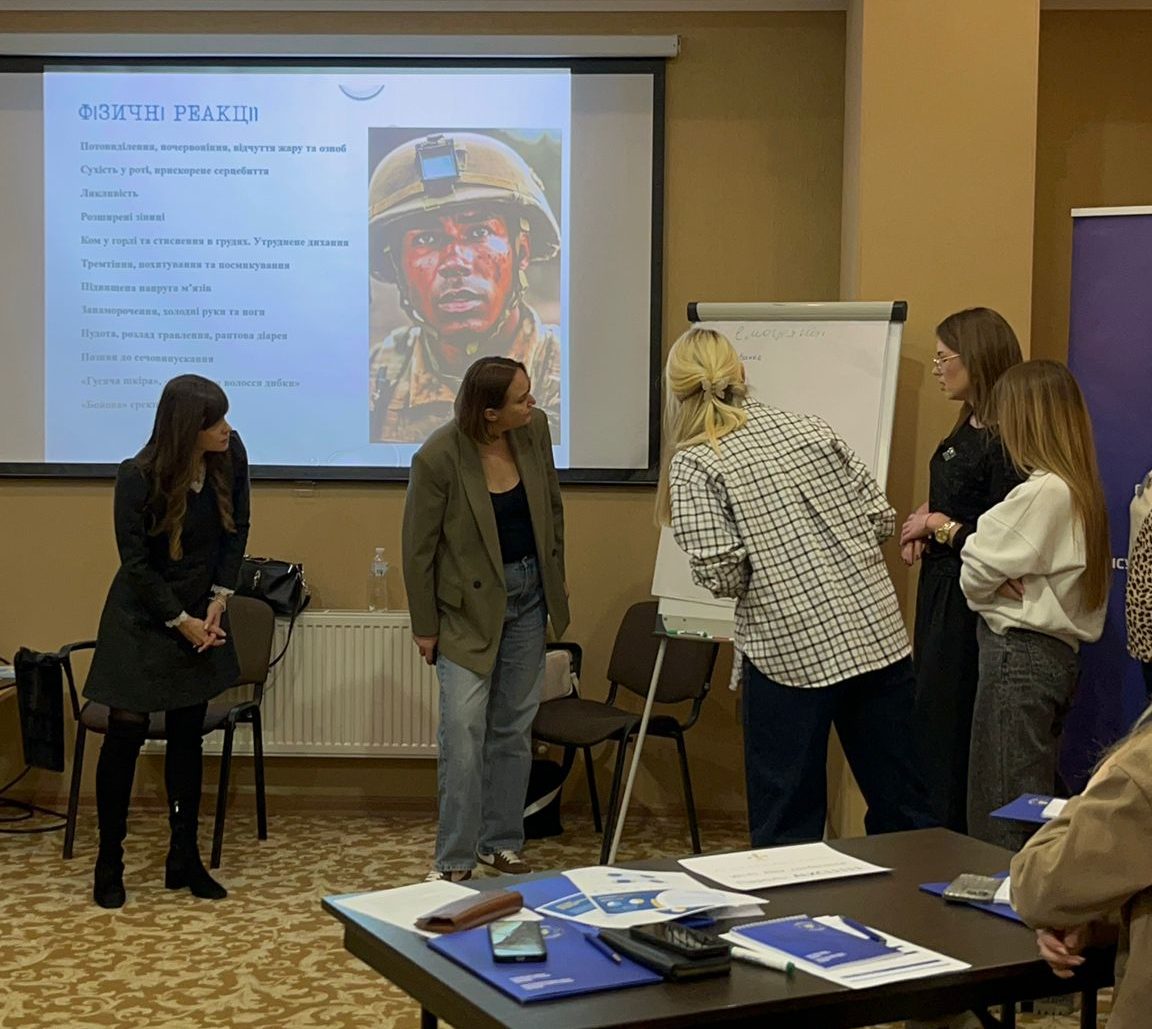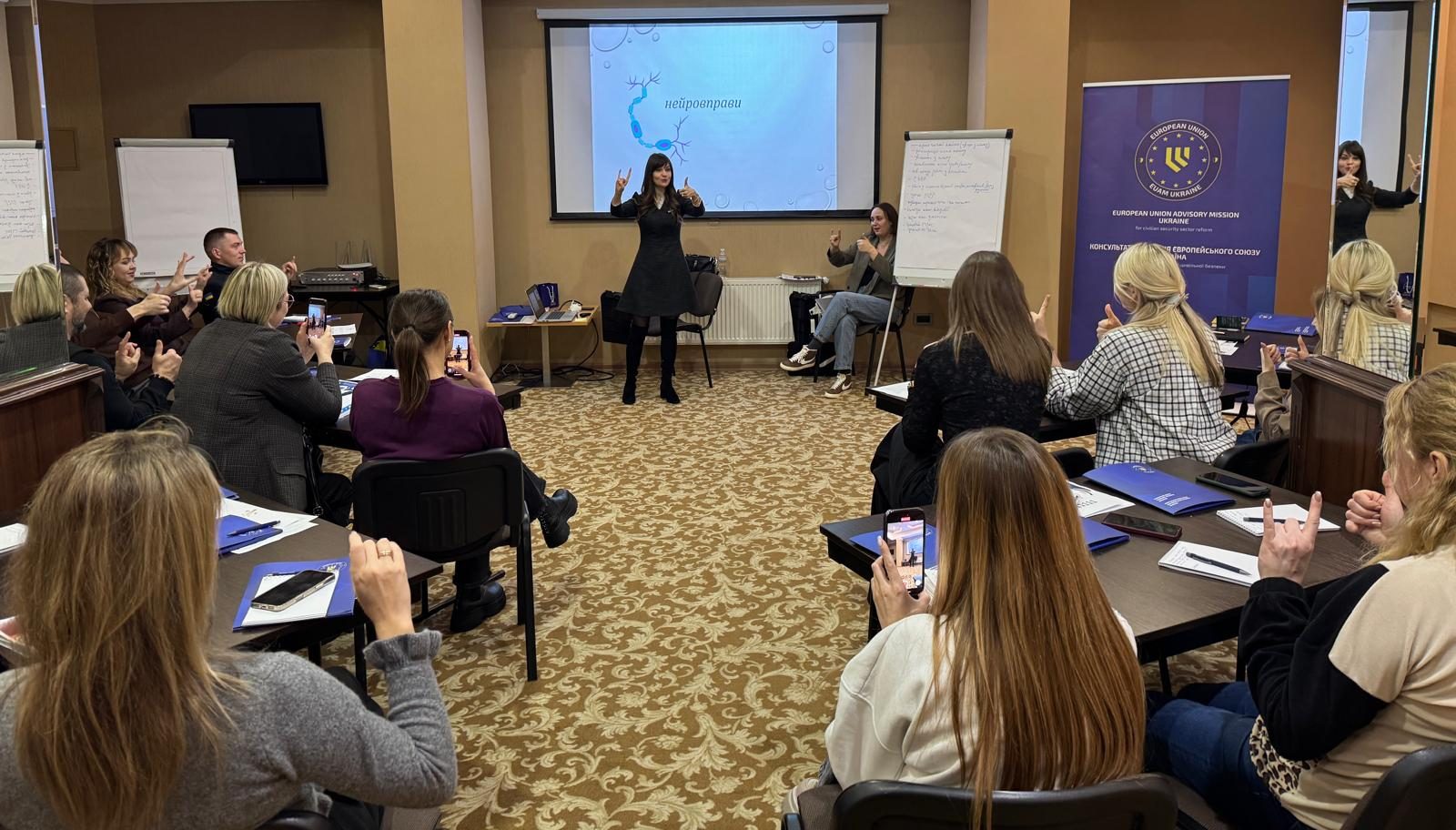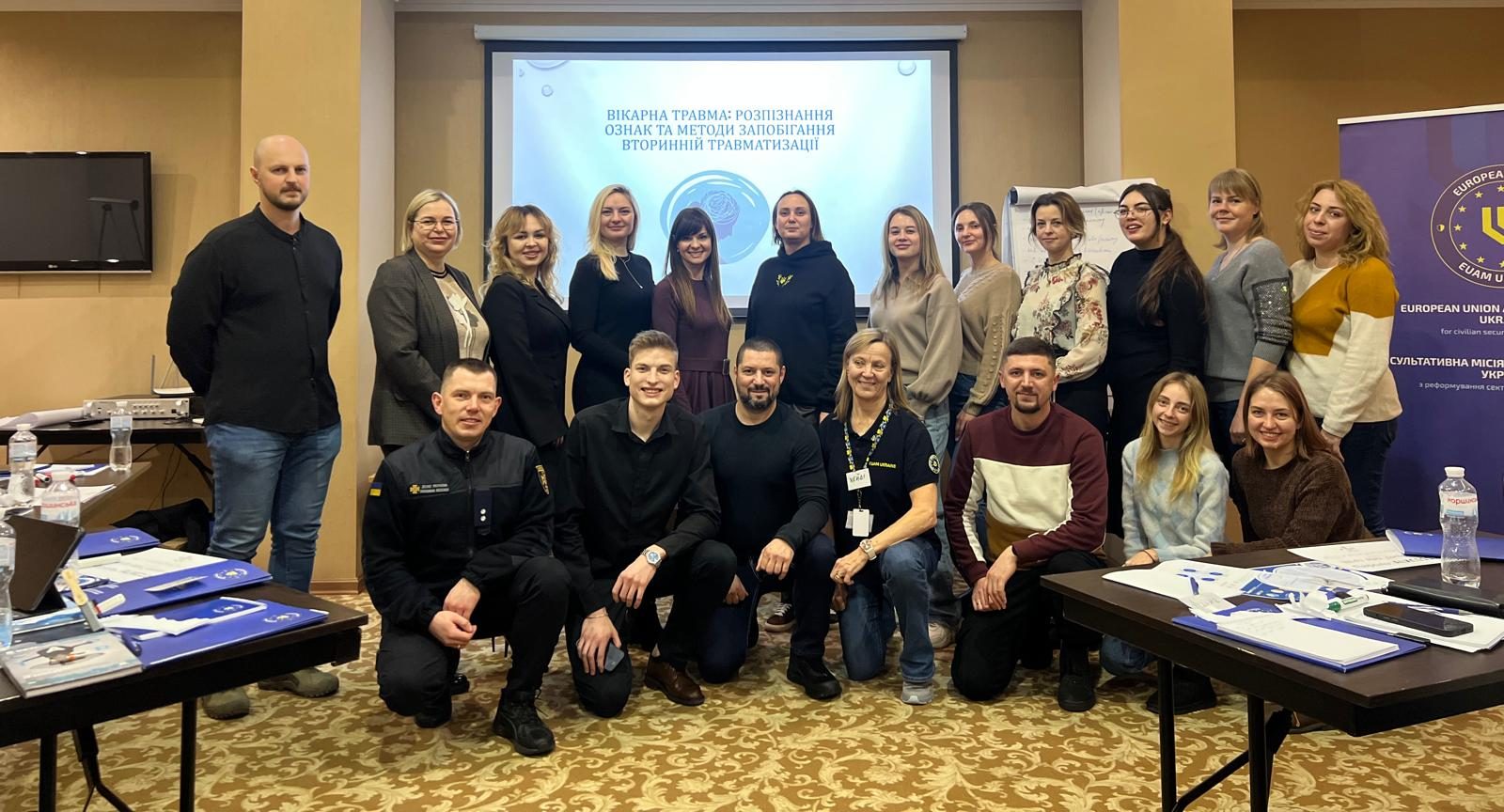Healing the Unseen Wounds: Addressing Trauma in Ukraine’s Law Enforcement
February 07, 2025
Ukrainian defenders are demonstrating extraordinary resilience and courage as they fight against the unprovoked Russian military aggression. Yet, the cost of this bravery is immeasurable. Those fortunate enough to return home physically uninjured often carry severe psychological scars – post-traumatic stress disorder (PTSD), anxiety, and survivor’s guilt. Many have seen comrades die, lose limbs, or face the overwhelming challenge of rebuilding their lives from scratch. And then there are those who have endured the horrors of Russian captivity, where brutal torture is a routine reality in violation of every convention of war and international law.
The psychological toll of these experiences is devastating. The burden of addressing this trauma falls not only on military medical personnel but also on psychologists, who are tasked with supporting those who return from war and captivity. Recognising the urgency of equipping these professionals with the necessary knowledge and skills, the European Union Advisory Mission (EUAM) Ukraine organised an intensive two-day workshop on January 28-29 in Odesa, bringing together 18 psychologists from the National Police, National Guard, and State Border Guard Service of Ukraine.

The training was structured around the real-world challenges faced by law enforcement psychologists. Led by professor Olha Pasko and trauma-focused therapist Nataliia Potseluieva, the sessions combined evidence-based theory with practical exercises, ensuring participants could immediately apply their learning.
A major focus was understanding the physiological effects of acute stress, combat trauma, and PTSD. Participants engaged in role-play scenarios to practice stabilisation techniques for individuals experiencing extreme distress. Suicide prevention strategies and approaches to addressing insomnia, both increasingly common issues among law enforcers, were also covered in depth.
One of the most critical aspects of the workshop was its emphasis on working with survivors of conflict-related sexual violence (CRSV) and individuals released from captivity. These cases require specialised psychological approaches due to the deep and lasting effects of captivity and torture.
Psychologists were trained to recognise specific behavioral responses in former captives, including dissociation, hypervigilance, and avoidance patterns. Practical therapeutic methods, such as trauma-informed counseling and body-oriented interventions, were introduced to help survivors regain control over their emotions and physical well-being. Given Ukraine’s ongoing efforts to return its defenders from Russian captivity, this knowledge is of utmost national importance.

Heidi Kotamaki, EUAM Advisor/Trainer on Community Policing, explains that throughout the training, Mission’s experts reinforced a key message: trauma is not a sign of weakness but a natural response to extreme conditions. “By acknowledging this”, she adds, “psychologists can better assist those in need while also prioritising their own mental well-being.
This workshop built upon previous training sessions conducted by EUAM in November 2024 and complemented an awareness-raising seminar for senior law enforcement officials on the importance of mental health support. Moving forward, EUAM plans to continue these workshops and expand engagement with leadership to institutionalise psychological first aid within law enforcement agencies.

As Ukraine fights for its sovereignty, the psychological resilience of those who defend and support the country is as vital as physical strength. Through activities like these, EUAM is actively contributing to a more robust and well-supported psychological service within law enforcement. Equipped with new knowledge and practical tools, mental health specialists are now better prepared to address trauma, foster recovery, and support those who have endured the unimaginable.


